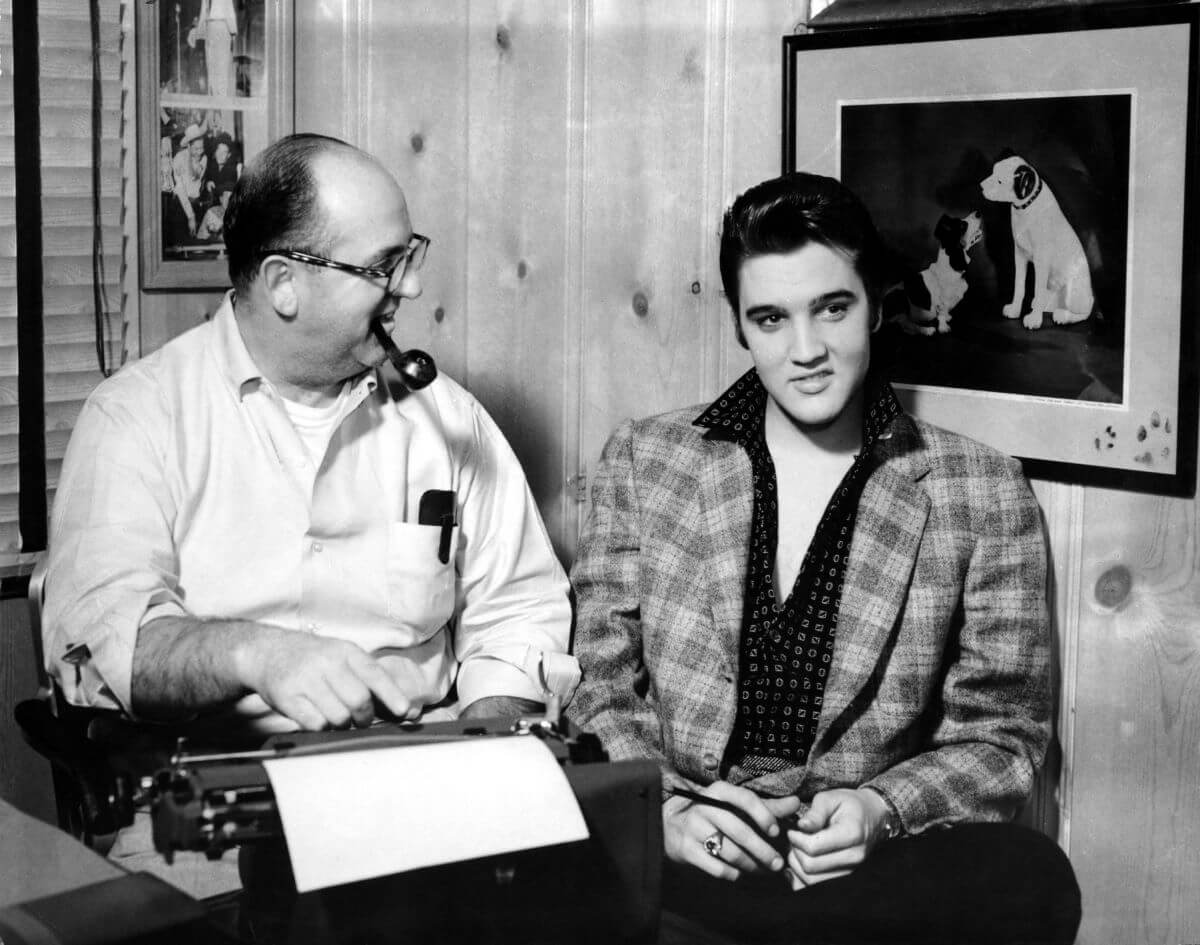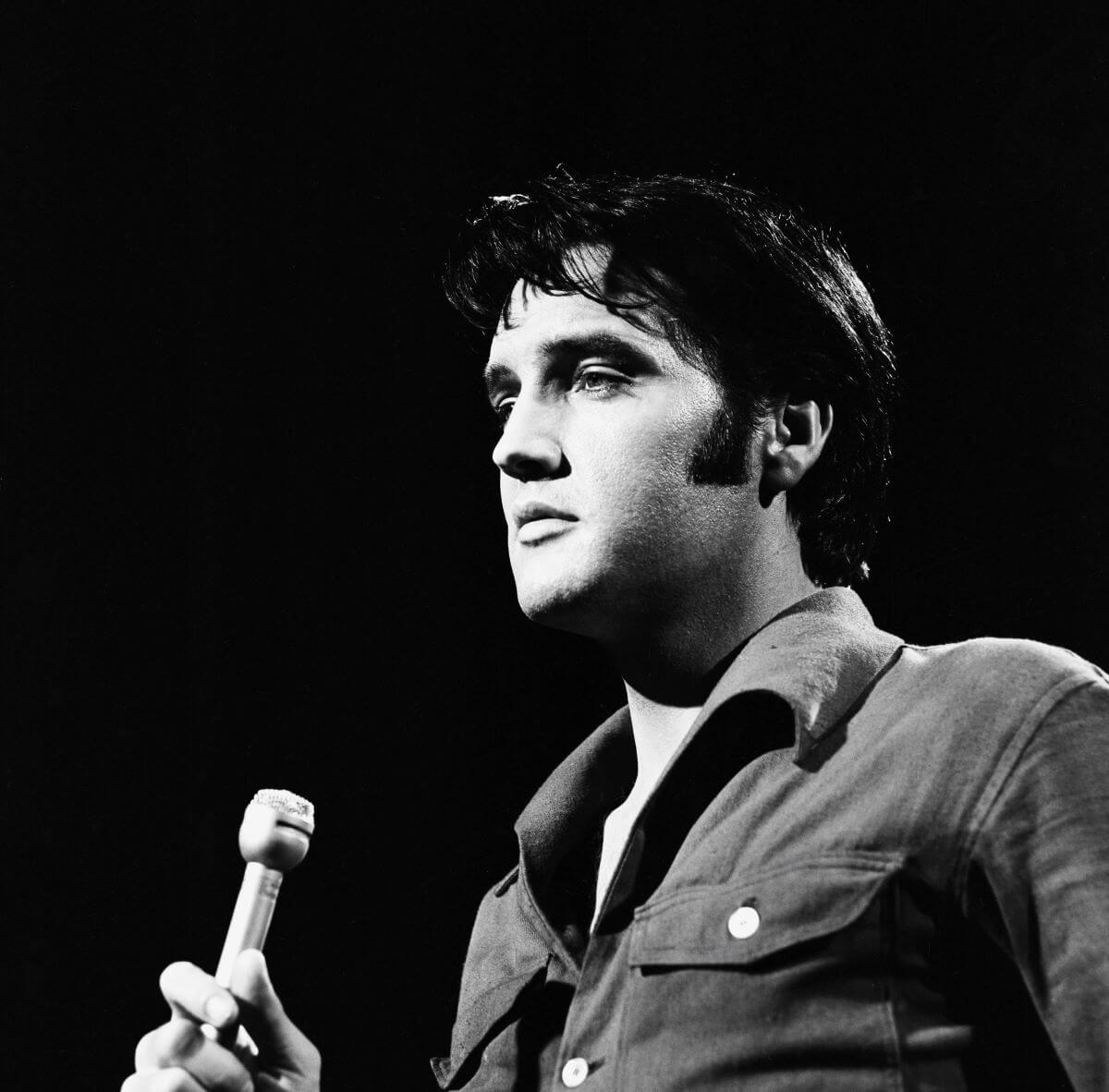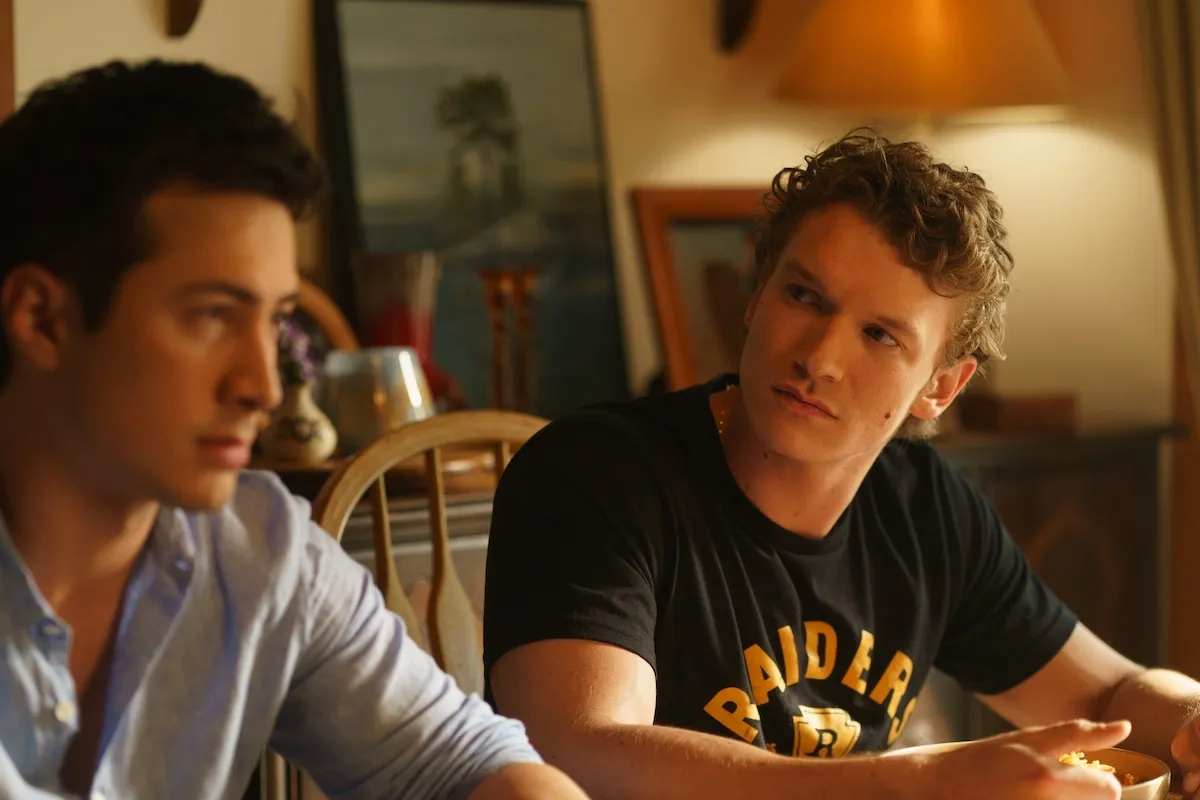
Elvis Was ‘Scared to Death’ of His Manager’s Power
Elvis Presley worked with his manager, Colonel Tom Parker, for years. Parker helped lift Elvis to unprecedented heights, but he also kept the singer on a tight leash. Elvis rarely pushed back against Parker’s leadership, even when he disagreed with his decisions. According to those who knew the singer, he was terrified of Parker.
Elvis bowed to his manager’s power
In 1956, Parker became Elvis’ manager, a position he would hold until the singer’s death in 1977. Most people saw Elvis as confident, boisterous, and good-humored. He rarely showed this side of himself around his manager, though.
Parker controlled Elvis’ career and business interests, but he also had a hand in the singer’s personal life. When he instructed Elvis to stop spending time alone with his barber, Larry Geller, Elvis did not argue.

“Elvis sat and listened like an obedient child, looking down, saying nothing,” Priscilla Presley wrote in her book Elvis and Me. “He did not stand up for Larry; no one did.”
People noticed the same thing in business meetings. Elvis sat meekly and allowed Parker to steer his career.
“Elvis was scared to death of the Colonel’s power,” director and producer Steve Binder said in The Colonel by Alanna Nash. “He felt shamed. He was very, very submissive.”
Elvis still pushed back against his manager in small ways
According to Binder, who directed Elvis’ 1968 Comeback Special, Parker used Elvis to shut down other people’s creative ideas.
“Whenever Parker basically told me that I couldn’t do what I was doing, the Colonel would look at Elvis and say, ‘Right, Elvis?’ And Elvis would say, ‘Yes, Colonel.’ And Parker would say, ‘So, Steve, we aren’t going to do this, are we?’ And I’d say, ‘If that’s what Elvis wants, then we won’t do it.’”
Elvis used these moments to push back against Parker in a minor way, once Parker was out of earshot.
“And then we would walk out of the office, and Elvis would lighten up and jab me in the ribs and say, ‘We are going to do it. To hell with Colonel Parker.’ But he never did stand up to him in front of me.”
The lack of control over his career left him feeling despondent
Because of Parker’s restrictive control over Elvis’ career, the singer began to feel disheartened. He didn’t feel that he had creative challenges in his life, which began to affect his happiness.
“I look back now and realize that our love affair was dependent on how his career was going,” Priscilla Presley wrote. “During protracted periods of noncreativity, his temper often flared.”

Priscilla tried desperately to get Elvis to push back against Parker’s decisions, but he refused.
“I wanted desperately to help him, but I wasn’t sure how,” she wrote. “In my innocence, I kept trying to convince him to argue with the Colonel. But he would only get angry, saying I didn’t know what I was talking about.”
As a result, both Elvis and Priscilla spent many sleepless nights worrying about his career.


